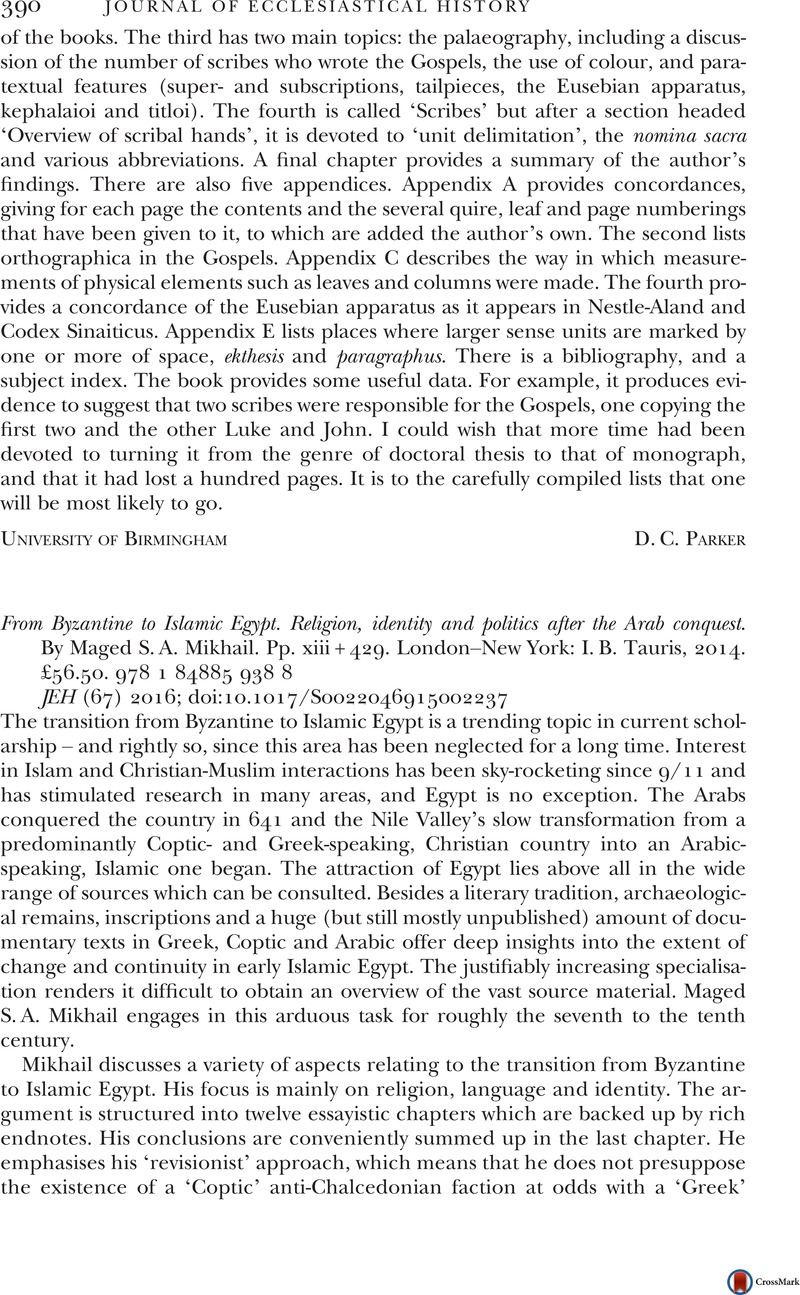No CrossRef data available.
Published online by Cambridge University Press: 03 March 2016

1 See, for instance, p. 102 n. 119 (p. 315) ‘spatkoptische’; p. 188: ‘ἐν τοῦτο νικά’.
2 See, for instance, p. 163 nn. 17–19 (p. 341): P.Oxy. is in fact P.Lond; p. 383; CPR VIII is in fact CPR II.
3 R. S. Bagnall, Everyday writing in the Græco-Roman East, Berkeley–Los Angeles– London 2012, 27–53.
4 For instance Mikhail gives the impression on p. 82 n. 11 (p. 305) that Qurra b. Sharīk sent letters in Coptic to Aphrodito, but we only have Greek and Arabic texts from his chancelry. Coptic was never an official administrative language in Egypt. On p. 138 he remarks ‘al-‘āmil, from ἀμαλίτης’. This etymology is not straightforward and it may well be the other way around: see H. I. Bell's n. on P.Lond. 4.1379.
5 A similar claim is to be found in connection to Rashīd b. Khaled on p. 104. The relevant note (n. 130/ p. 316) refers to three texts, of which the third, P.Ryl.Copt. 306 is a paper document and is therefore probably much later than the dossier of Rashīd b. Khaled. On his person and dossier see K. A. Worp, ‘Studien zu spätgriechischen, koptischen und arabischen Papyri’, Bulletin de la Société d'Archéologie Copte xxvi (1984), 99–107 at pp. 100-1 and, more recently, G. Schenke, ‘Rashid ibn Chaled and the return of overpayments’, Chronique d’Égypte lxxxix (2014), 202–9 at p. 204.